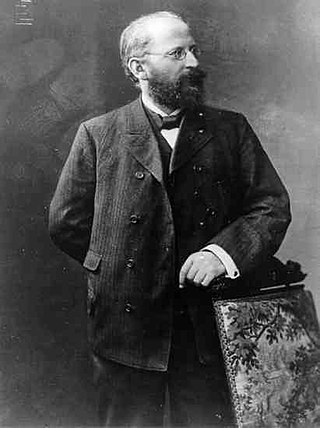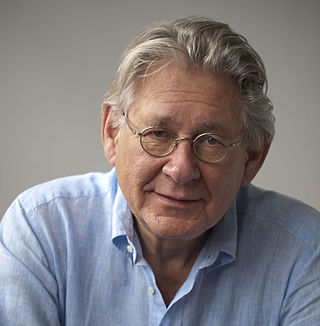Related Research Articles
Socialism is a political philosophy and movement encompassing a wide range of economic and social systems which are characterised by social ownership of the means of production, as opposed to private ownership. As a term, it describes the economic, political, and social theories and movements associated with the implementation of such systems. Social ownership can be public, community, collective, cooperative, or employee. While no single definition encapsulates the many types of socialism, social ownership is the one common element. Socialism is traditionally placed on the left-wing of the political spectrum. Different types of socialism vary based on the role of markets and planning in resource allocation, on the structure of management in organizations, and from below or from above approaches, with some socialists favouring a party, state, or technocratic-driven approach. Socialists disagree on whether government, particularly existing government, is the correct vehicle for change.

The New Republic is an American magazine of commentary on politics, contemporary culture, and the arts. Founded in 1914 by several leaders of the progressive movement, it attempted to find a balance between "a liberalism centered in humanitarian and moral passion and one based in an ethos of scientific analysis".

In These Times is an American politically progressive monthly magazine of news and opinion published in Chicago, Illinois. It was established as a broadsheet-format fortnightly newspaper in 1976 by James Weinstein, a lifelong socialist. It investigates alleged corporate and government wrongdoing, covers international affairs, and has a cultural section. It regularly reports on labor, economic and racial justice movements, environmental issues, feminism, grassroots democracy, minority communities, and the media.

Eduard Bernstein was a German social democratic Marxist theorist and politician. A member of the Social Democratic Party of Germany (SPD), Bernstein had held close association to Karl Marx and Friedrich Engels, but he began to identify what he believed to be errors in Marxist thinking and began to criticize views held by Marxism when he investigated and challenged the Marxist materialist theory of history. He rejected significant parts of Marxist theory that were based upon Hegelian metaphysics and rejected the Hegelian perspective of an immanent economic necessity to socialism.
Robin Eric Hahnel is an American economist and professor emeritus of economics at American University. He was a professor at American University for many years and traveled extensively advising on economic matters all over the world. He is best known for his work on participatory economics with Z Magazine editor Michael Albert.
Ruy Teixeira is an American political scientist and commentator who has written several books on various topics in political science and political strategy. He is most noted for his work on political demography, and particularly for The Emerging Democratic Majority (2002), which he co-wrote with John Judis, a book arguing that the Democratic Party are demographically destined to become a majority party in the United States of the early 21st century. He writes and edits the weblog The Democratic Strategist.

Leo Victor Panitch was a distinguished research professor of political science and a Canada Research Chair in comparative political economy at York University. From 1985 until the 2021 edition, he served as co-editor of the Socialist Register, which describes itself as "an annual survey of movements and ideas from the standpoint of the independent new left". Panitch himself saw the Register as playing a major role in developing Marxism's conceptual framework for advancing a democratic, co-operative and egalitarian socialist alternative to capitalist competition, exploitation, and insecurity.
The history of the socialist movement in the United States spans a variety of tendencies, including anarchists, communists, democratic socialists, Marxists, Marxist–Leninists, Trotskyists and utopian socialists. It began with utopian communities in the early 19th century such as the Shakers, the activist visionary Josiah Warren and intentional communities inspired by Charles Fourier. Labor activists, usually Jewish, German, or Finnish immigrants, founded the Socialist Labor Party of America in 1877. The Socialist Party of America was established in 1901. By that time, anarchism also rose to prominence around the country. Socialists of different tendencies were involved in early American labor organizations and struggles. These reached a high point in the Haymarket massacre in Chicago, which founded the International Workers' Day as the main labour holiday around the world, Labor Day and making the eight-hour day a worldwide objective by workers organizations and socialist parties worldwide.

John Bellamy Foster is an American professor of sociology at the University of Oregon and editor of the Monthly Review. He writes about political economy of capitalism and economic crisis, ecology and ecological crisis, and Marxist theory. He has given numerous interviews, talks, and invited lectures, as well as written invited commentary, articles, and books on the subject.

Ellen Meiksins Wood was an American-Canadian Marxist political theorist and historian.

Joel Stephen Kovel was an American scholar and author known as a founder of eco-socialism. Kovel became a psychoanalyst, but he abandoned psychoanalysis in 1985.
Social democracy is a political, social, and economic philosophy within socialism that supports political and economic democracy. As a policy regime, it is described by academics as advocating economic and social interventions to promote social justice within the framework of a liberal-democratic polity and a capitalist-oriented mixed economy.
Democratic socialism is a left-wing political philosophy that supports political democracy and some form of a socially owned economy, with a particular emphasis on economic democracy, workplace democracy, and workers' self-management within a market socialist economy or an alternative form of a decentralised planned socialist economy. Democratic socialists argue that capitalism is inherently incompatible with the values of freedom, equality, and solidarity and that these ideals can only be achieved through the realisation of a socialist society. Although most democratic socialists seek a gradual transition to socialism, democratic socialism can support revolutionary or reformist politics to establish socialism. Democratic socialism was popularised by socialists who opposed the backsliding towards a one-party state in the Soviet Union and other nations during the 20th century.
State socialism is a political and economic ideology within the socialist movement that advocates state ownership of the means of production. This is intended either as a temporary measure, or as a characteristic of socialism in the transition from the capitalist to the socialist mode of production or to a communist society. State socialism was first theorised by Ferdinand Lassalle. It advocates a planned economy controlled by the state in which all industries and natural resources are state-owned.

Edward Michael Harrington Jr. was an American democratic socialist. As a writer, he was best known as the author of The Other America. Harrington was also a political activist, theorist, professor of political science, and radio commentator. He was a founding member of the Democratic Socialists of America, and its most influential early leader.
Eco-socialism is an ideology merging aspects of socialism with that of green politics, ecology and alter-globalization or anti-globalization. Eco-socialists generally believe that the expansion of the capitalist system is the cause of social exclusion, poverty, war and environmental degradation through globalization and imperialism, under the supervision of repressive states and transnational structures.
Revolutionary socialism is a political philosophy, doctrine, and tradition within socialism that stresses the idea that a social revolution is necessary to bring about structural changes in society. More specifically, it is the view that revolution is a necessary precondition for transitioning from a capitalist to a socialist mode of production. Revolution is not necessarily defined as a violent insurrection; it is defined as a seizure of political power by mass movements of the working class so that the state is directly controlled or abolished by the working class as opposed to the capitalist class and its interests.
Orthodox Marxism is the body of Marxist thought which emerged after the death of Karl Marx and Friedrich Engels in the late 19th century, expressed in its primary form by Karl Kautsky. Kautsky's views of Marxism dominated the European Marxist movement for two decades, and orthodox Marxism was the official philosophy of the majority of the socialist movement as represented in the Second International until the First World War in 1914, whose outbreak caused Kautsky's influence to wane and brought to prominence the orthodoxy of Vladimir Lenin. Orthodox Marxism aimed to simplify, codify and systematize Marxist method and theory by clarifying perceived ambiguities and contradictions in classical Marxism.

Utopian socialism is the term often used to describe the first current of modern socialism and socialist thought as exemplified by the work of Henri de Saint-Simon, Charles Fourier, Étienne Cabet, and Robert Owen. Utopian socialism is often described as the presentation of visions and outlines for imaginary or futuristic ideal societies, with positive ideals being the main reason for moving society in such a direction. Later socialists and critics of utopian socialism viewed utopian socialism as not being grounded in actual material conditions of existing society. These visions of ideal societies competed with revolutionary and social democratic movements.
Social democracy originated as an ideology within the labour whose goals have been a social revolution to move away from purely laissez-faire capitalism to a social capitalism model sometimes called a social market economy. In a nonviolent revolution as in the case of evolutionary socialism, or the establishment and support of a welfare state. Its origins lie in the 1860s as a revolutionary socialism associated with orthodox Marxism. Starting in the 1890s, there was a dispute between committed revolutionary social democrats such as Rosa Luxemburg and reformist social democrats. The latter sided with Marxist revisionists such as Eduard Bernstein, who supported a more gradual approach grounded in liberal democracy and cross-class cooperation. Karl Kautsky represented a centrist position. By the 1920s, social democracy became the dominant political tendency, along with communism, within the international socialist movement, representing a form of democratic socialism with the aim of achieving socialism peacefully. By the 1910s, social democracy had spread worldwide and transitioned towards advocating an evolutionary change from capitalism to socialism using established political processes such as the parliament. In the late 1910s, socialist parties committed to revolutionary socialism renamed themselves as communist parties, causing a split in the socialist movement between these supporting the October Revolution and those opposing it. Social democrats who were opposed to the Bolsheviks later renamed themselves as democratic socialists in order to highlight their differences from communists and later in the 1920s from Marxist–Leninists, disagreeing with the latter on topics such as their opposition to liberal democracy whilst sharing common ideological roots.
References
- ↑ "Senior Editor John B. Judis". The New Republic. Archived from the original on January 25, 2013. Retrieved October 16, 2012.
- ↑ "Christopher Hitchens on Socialism vs. Capitalism - Ayn Rand Debate, Marx, Quotes (1986) - YouTube". www.youtube.com. Archived from the original on 2021-12-21. Retrieved 2021-01-01.
- ↑ Streeck, Wolfgang, 1946- (2016). How will capitalism end? : essays on a failing system. London. ISBN 978-1-78478-401-0. OCLC 956583664.
{{cite book}}: CS1 maint: location missing publisher (link) CS1 maint: multiple names: authors list (link) CS1 maint: numeric names: authors list (link) - ↑ Judis, John B. (2020). The socialist awakening : what's different now about the left. New York. ISBN 978-1-7344207-0-8. OCLC 1147880311.
{{cite book}}: CS1 maint: location missing publisher (link) - ↑ "The Emerging Republican Advantage" . National Journal. Retrieved 2019-05-02.
- ↑ Barone, Michael (2015-02-03). "Co-author of The Emerging Democratic Majority recants". Washington Examiner. Retrieved 2019-05-02.
- ↑ Dionne, E. J. (1 April 2019). "Is There Such a Thing as Progressive Nationalism?". The American Prospect.